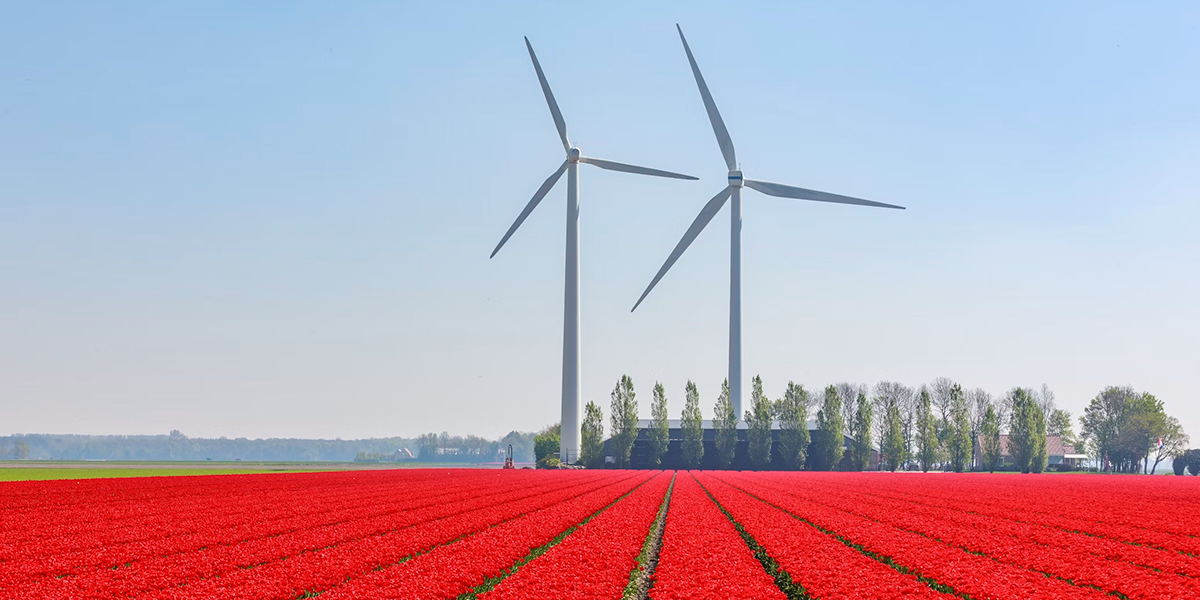Experienced electrician Paul began working for InAxtion in 2022. Moving to the Netherlands from Romania was a big step – especially with his wife and family at home. Since making the move, he’s worked on a number of civil engineering projects. We caught up with Paul to hear more about the work he does, and what life’s really like in the Netherlands. Now he is a happy electrician in the Netherlands.
What kind of electrical work do you do?
I mainly work on low-wattage electrical projects – between 220 and 400 volts. I basically cover everything from reading the drawings and making the circuits, to installing connection boxes and light switches. It’s not exactly the same, but it’s very similar to what you’d do in a house. If you know the basics – you can do it – no problem!
Back home in Romania, I was mainly working in computers and maintenance. I also did wiring for apartments and houses. When I got to the Netherlands, I started doing electrical work on a daily basis. As far as I can tell, there’s always work for general contractors like electricians, plumbers, and welders. So far, as an electrician, I’ve gone from project to project. A project will end on a Friday and the next one will start on a Monday.
Due to the restrictions in place during the Covid pandemic, I had to close my business in Romania. So I began looking for work in the Netherlands because the salary is more than double what I’d earn back home.
What’s it like living and working in the Netherlands?
At first, it was a bit difficult with the language. It actually helps if you know a bit of German because it’s very easy to jump from German to Dutch. Unfortunately for me, it’s not so easy because I studied French and English in school! Dutch is difficult – to put it nicely! The great thing is that lots of people speak English, so you can usually get your point across.
On the projects I’ve done so far, I’ve worked with colleagues from all over Eastern Europe, including Romania, Poland, Hungary, and Slovakia. My line manager is from Poland, but he’s relocated to the Netherlands. Our project manager is Dutch, but he speaks excellent English. I like how they are really clear about each stage of the project. We communicate on WhatsApp. If there’s a problem – say there’s no wall to install a cable tray – we snap a photo and send it over.
A lot of Dutch people study English as a second language in school. Since I’ve been here, speaking English has been very useful – inside and outside work. Sometimes at work, there are technical terms that are difficult to translate, especially when different nations use different terms for things. Google Translate comes in handy!
With a bit of patience, people catch on to what you’re trying to say – it’s like filling in the gaps of a puzzle. But it’s still easier to communicate with people from your own country – in your native tongue. Especially for socializing outside of work at BBQs and so on.
Can you describe a typical working day?
For me, and a lot of other people from Romania and Eastern Europe, we’re used to working long hours, including Saturdays. Here in the Netherlands, I do 8 hours per day, 5 days a week – with the weekends off.
I get up at 5 am. I get ready for work, and then it’s about a half an hour drive – depending on the highway traffic. We start early at 6:30 am – the Project Manager has a two-hour drive home – so we start early and also finish early at 3:30 pm.
Before we start, there’s time for coffee and a team meeting. The day’s work is divided between small teams of two or three people. We usually take our first 15-minute break at 9:30 am. Then at 9:45 am it’s back to work until 12:30 pm.
We get half an hour for lunch and then from 1pm to 3 pm it’s the final shift. We pack away the tools and cable trays into the container and a special room at 3 pm. And then it’s time to go home.
At the weekends, there’s time to wash your work clothes, clean your accommodation, and catch up with colleagues. We might play computer games or watch movies. When we go out, it’s good to have someone who speaks a bit of the language.
What are your plans for the future?
For me, saving money is my purpose. Each week I send home most of my wages to my wife and family. My wife is doing work on our house, like putting a fence around our yard, and all those kinds of things. The money helps us get a lot of things done. Everyone has different motivations, but mine is finishing the house, and with this salary I can do it in half the time.
I also get to fly home three times a year – Christmas, Easter, and October – for my kids’ birthdays. I’ve found it’s cheaper to fly home from Belgium – which is easy to get to by train from here. Usually, return flights from Belgium are cheaper than a single flight from Eindhoven!
How has InAxtion helped you?
InAxtion finds the work for you. As you gain more experience, they try to put you on new projects with the same people – especially when you have a good relationship with them. InAxtion also provides the accommodation, and can also help you with a car, if needed.
Finding a place to rent in the Netherlands is difficult. There’s a shortage of accommodation in some areas. I have friends who found work independently in the Netherlands, and some of them have waited 6 months to rent accommodation! With InAxtion, it’s all taken care of.
The other good thing about InAxtion, is that you don’t sit around waiting for another project. If you’re due to finish a project on a Friday, they usually tell you a week in advance where your next project will be, and who the contact person is.
Interested in working as an electrician in the Netherlands? InAxtion can help you. View current vacancies.


